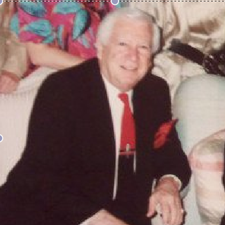
Sherwood Ross, better known in the industry as Jerry Ross, passed away Tuesday at the age of 92.
Ross was an engineer and former president of Ross Bicycles, one of the top U.S. bike manufacturers from the 1950s to late 1980s. Through the ’70s, Ross Bicycles was second only to Schwinn in market share and volume of bikes made and sold.
Ross’s father, Albert, founded the company as Ross Galvanizing Works in Brooklyn, New York, in the 1940s, manufacturing and galvanizing pipes and pipe fittings for the fencing industry and later galvanized steel parts for military ships during World War II. Once the war ended, the company transitioned into consumer goods and began manufacturing bicycles along with lawn mowers and wheelchairs, including contract work for the government.
Ross convinced his father to begin manufacturing bicycles—starting with tricycles and other kids’ bikes—and eventually moved the factory from Rockaway Beach, New York, to Allentown, Pennsylvania in 1973. It became Chain Bike Corp. and later Ross Bicycles. In those days, most bicycles were still manufactured in the U.S. with very few imports, mostly from Europe. Also in the '60s and '70s, sales were mostly through mass merchants, which at the time were tire stores, auto repair shops and hobby shops.
“My dad was a brilliant engineer,” said Randy, his son, who worked at the company from 1977 until its bankruptcy in 1988. “His passion was engineering. If you walked up to him and said this TV set is broken we need you to put it together. He’d figure out a way and enjoy doing it. He enjoyed being in the factory more than anything. He would sit with tool and die makers. He loved designing bicycles.”
One of the first weeks on the job, Randy said his father sent him to Chicago to see how Schwinn made its bicycles. “I spent two weeks watching their assembly line,” he recalled. “Back then it was all friendly competition among the six or seven major manufacturers.”
Ross was born in 1921 in Brooklyn, New York. He studied mechanical engineering at Brooklyn Technical High School, the Pratt Institute and Lasalle University. He served in the navy and loved boats. He would often entertain scores of Ross dealers on his personal yacht. He lived large and was known for hosting lavish parties at dealer events or trade shows that were black-tie affairs in huge ballrooms.
He was also an early adopter of technology, using mobiles phones in the early 1980s. Ross holds several bicycle-related patents and he was president of the Bicycle Institute of America and the Bicycle Manufacturers Association and served as committee chairman at both groups.
Though his company was known for its family bikes, Ross was one of the earliest marketers of mountain bikes in the early 1980s. Ross Bicycles introduced one of the first production-level mountain bikes at the Interbike trade show in 1982. Ross sponsored the first professional factory mountain bike race team with paid riders and uniforms as well as a major East Coast race in Wendell State Forest, efforts that paid off with increased marketshare and industry visibility. He hired noted framebuilder Jim Redcay to develop the Signature mountain bike line.
“Jerry invested in promotion—he really got behind fast and early on the mountain bike movement,” said Patrick Cunnane, ASI’s president and CEO, who worked for Ross Bicycles as national sales manager from 1982 to 1988. “He was very innovative from a marketing standpoint and willing to invest in product.
“He also supported the people who worked for him at an incredible level,” Cunnane recalled, adding that Ross took him under his wing. “He would work nonstop, and the level of detail that went into manufacturing there was intense. He was a stickler on how to get stuff done. It was a very intense environment to work in but the best experience I could have possibly had.”
During the 1980s, Ross Bicycles grew to be a $30 million company selling between 220,000 and 250,000 bikes a year and production moved overseas. By this time, its sales were mostly to IBDs.
Fred Wilkens, who started working at the factory in 1955 after college and then moved into sales, was the son of Jerry’s sister. Wilkens’ late father, Sam, and mother were part owners of Ross Bicycles until they sold their share to the Ross family in 1981. The Wilkens family drove the sales side of the business during their shared ownership of the company.
“Jerry was a flashy, outstanding-type-of-guy, quite a character,” Wilkens said. “My father was the opposite—he was conservative, very serious. They made a good team.
“He loved the industry,” Wilkens said about Jerry. “I never looked at him as an uncle, but as a boss or buddy. He taught me a lot,” he added.
Rand acquired Ross Bicycles shortly after it filed for bankruptcy and Ross stayed onboard for a few years as a consultant and then retired. More recently he worked as an expert witness on product liability cases, something he did until the past couple of years. Over the last year Ross’s health deteriorated after falling and injuring his back.
He is survived by two sons, Randy and Andrew, one daughter, Candace (Candy); and six grandchildren.
A private family memorial service is planned next week in Florida.





